| 5. | Check the cylinder compression pressure. | (1) | Insert a compression gauge into the spark plug hole. 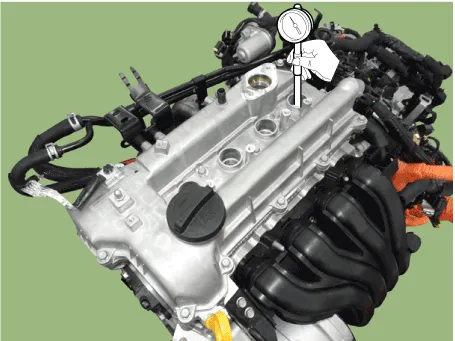
|
| (2) | Attach the GDS | –
| Connect the cable of GDS to the data link connector. |
| –
| Select the vehicle model and then the HCU system. |
| –
| Select the "Engine On Test". See the screens below. |
|
| (3) | While cranking the engine, measure the compression pressure. | –
| With the Brake pedal depressed, press the Start/Stop Button (SSB) one time. |
| –
| If the engine cranks, let it crank about 8 to 10 cycles (until the gauge readings stabilizes) then press the SSB one time to stop the engine from cranking. |
| –
| If the engine does not crank on its own when the SSB is pressed, the GDS should be used to crank the engine. While in the "Engine On Test" follow the instruction on the screen. |
| –
| The "Engine On Test" will start the engine cranking. After the compression readings stabilize (8-10 cycles), press the SSB one time to stop the cranking. |
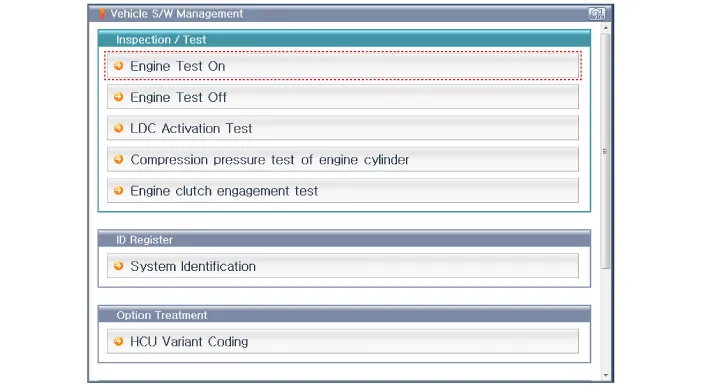
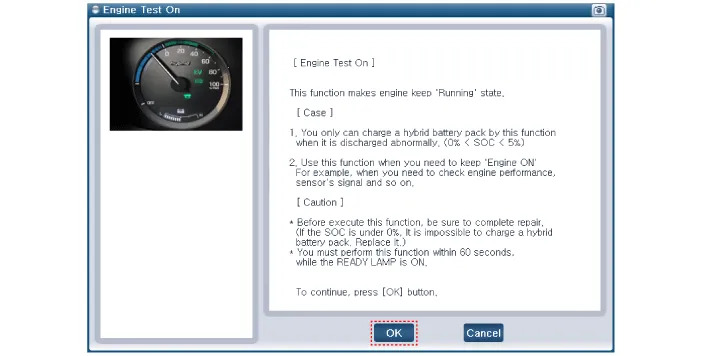
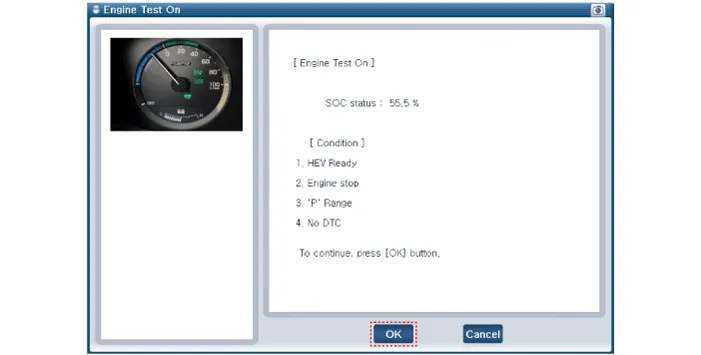
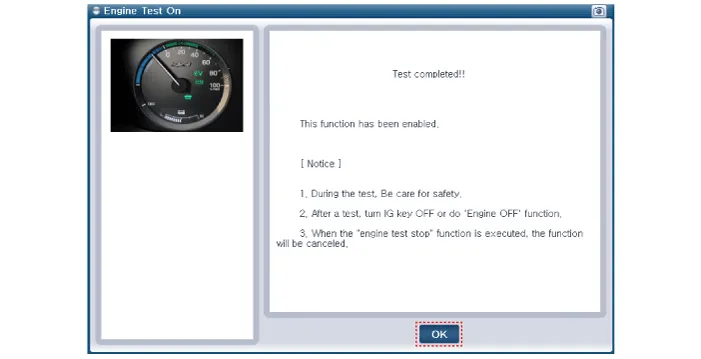
|
| (4) | Repeat step (1) through (2) for each cylinder. | •
| This measurement must be done in as short atime as possible. |
|
Compression pressure : 0,981 kPa (10.0 kg/cm², 142.2 psi) / 300 - 350 rpm Minimum pressure : 0,834 kPa (8.5 kg/cm², 120.9 psi) / 300 - 350 rpm Difference between each cylinder : 98 kPa (1.0 kg/cm², 14 psi) or less |
|
| (5) | If the cylinder compression in 1 or more cylinders is low, pour a small amount of engine oil into the cylinder through the spark plug hole and repeat step (1) through (2) for cylinders with low compression. | •
| If adding oil helps the compression, it is likely that the piston rings and/or cylinder bore are worn or damaged. |
| •
| If pressure stays low, a valve may be sticking or seating is improper, or there may be leakage past the gasket. |
|
|






